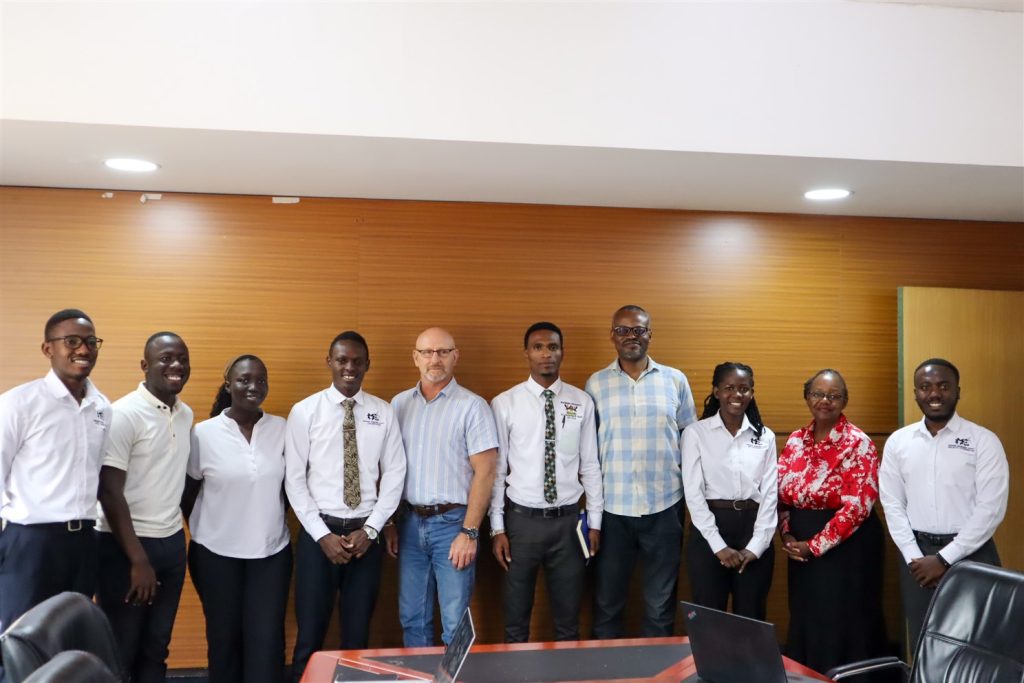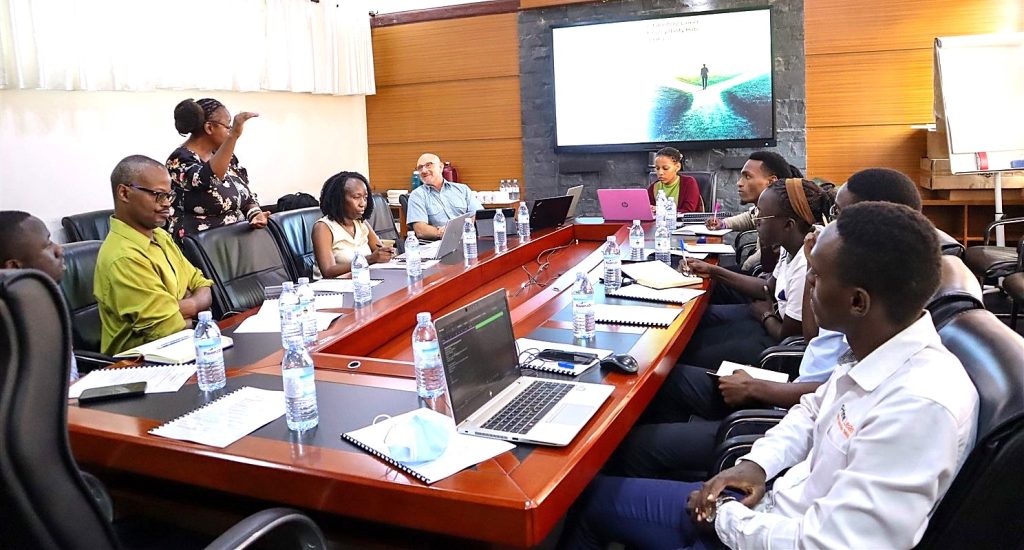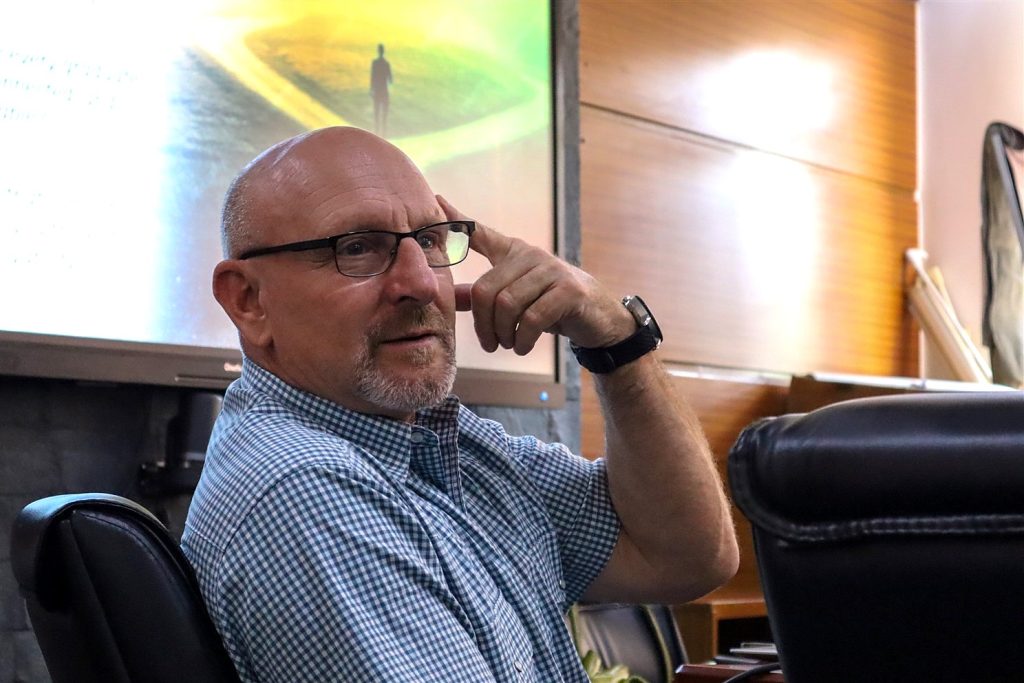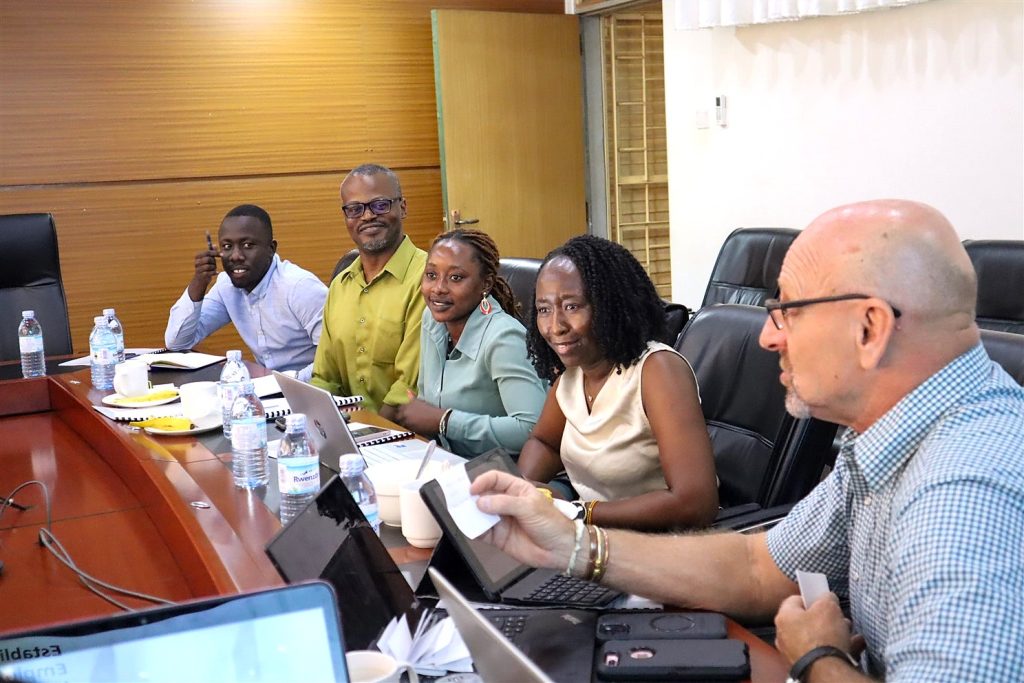
CEDAT staff and students have been urged to “think bigger than Uganda,” in light of the persistent global demand for engineering professionals deeply connected to innovation and growth.
Speaking during an employability training, participants were also reminded that in today’s competitive landscape, a degree alone is no longer sufficient. It must be complemented by strong soft skills and interpersonal competencies to meet the evolving expectations of employers. Every graduate, it was emphasized, should be prepared to confidently answer the pivotal interview question: “What do you bring to the company that everyone else doesn’t?”
The Career Employability Hubs Workshop delivered invaluable insights for both faculty and student leaders, reinforcing the Makerere University School of Engineering’s commitment to producing graduates who are not only academically accomplished but also fully equipped to thrive in the global industry. Held on September 25–26, 2025, at theCollegeof Engineering, Design, Art and Technology (CEDAT), the two-day workshop focused on enhancing career readiness and employability among university graduates, bridging the gap between academic training and industry expectations.
The workshop, attended by lecturers and student leaders, offered a dynamic platform for dialogue, skills development, and strategic planning. Organized by UNESCO in collaboration with the China Funds in Trust (CFIT), it formed a key component of the UNESCO CFIT IIIproject, which aims to bridge the gap between academic training and the evolving demands of the global workforce.
Prof. Marco Turco from Cadena, an organization contracted by UNESCO for this initiative, expertly facilitated the two-day workshop. Prof. Turco drew on his extensive experience to guide participants through the nuanced dimensions of employability in today’s workforce. His sessions explored key themes such as effective thinking, multiple intelligences, communication and networking strategies, and the importance of cultivating diverse skill sets, equipping students and educators alike with practical insights to navigate and thrive in a rapidly evolving professional landscape.

Prof. Turco emphasized the value of soft skills, identifying them as one of the most critical attributes employers seek in new hires. He also pointed to the growing importance of circular thinking, especially in the field of green engineering.
With adaptability as a central theme throughout the workshop. Prof. Marco Turco emphasized that while the processes of unlearning and rethinking may be challenging, they are among the most essential skills for educators in today’s rapidly evolving world. He reminded participants that change is one of the world’s only two absolute truths, and stressed that the inability to adapt inevitably leads to being left behind. His message served as a compelling call to embrace flexibility, continuous learning, and innovation in both teaching and professional development.
In this context, Prof. Marco Turco addressed a frequently debated question: Who is moreattractive to employers, a specialist or a generalist? He affirmed that generalists are often more appealing in today’s dynamic job market, as their broad knowledge base and versatile skill set enable them to adapt more readily to shifts in business systems and evolving industry demands. This adaptability, he noted, positions generalists as valuable assets in organizations that prioritize flexibility, innovation, and cross-functional collaboration.

The sessions were packed with practical insights for both students and educators, all aimed at narrowing the persistent gap between academia and industry. A key takeaway was the critical importance of workplace experience, which, according to Prof. Marco Turco, stands as the single most valued attribute by employers. He cautioned that the conventional six-week internship is often inadequate—and in many cases, not even considered during candidate selection. Instead, students were encouraged to continuously acquire micro-skills, gain hands-on exposure, and think strategically about the evolving needs of industry over the next five years. This forward-looking mindset, he emphasized, is essential for staying competitive and relevant in a rapidly changing job market.
While emphasizing the importance of networking, Lecturers were urged to train students in the art of professional networking with industry representatives. This training should prepare students to approach interactions with clarity and purpose, knowing who they are speaking to, why they are engaging, and what they intend to communicate. Prof. Turco emphasized that impactful networking often happens in brief exchanges and that students must be equipped to deliver a concise, meaningful message within three minutes or less.
During the training, it was emphasized that holistic Intelligence was important. Success in today’s professional landscape demands more than academic excellence, said Prof. MarcoTurco, highlighting the significance of developing holistic intelligence, which encompasses cognitive, emotional, linguistic, and social dimensions. These interconnected forms of intelligence are essential for navigating complex workplace dynamics, fostering effective communication, and adapting to diverse environments. By cultivating these areas, students and educators can better prepare for the multifaceted challenges of the modern workforce.
Regarding the Importance of Well-being, Prof. Marco Turco emphasized the vital role of mental health and happiness in shaping professional success. He noted that a positive mental state radiates from within, influencing not only personal well-being but also the surrounding environment and overall performance. By prioritizing emotional balance and psychological resilience, individuals are better equipped to thrive in both academic and workplace settings.
The highly interactive workshop included a series of activities designed to foster new perspectives. These included Student Journey Mapping, where Students were tasked with mapping their journey from their first to final year, while lecturers mapped how they perceive the student journey. The idea of Passion over Profit was explored withparticipants writing down what work they would do if money were not a problem, and in impact, daily, attendees shared things, no matter how small, they had done that day to make the world a little better.

